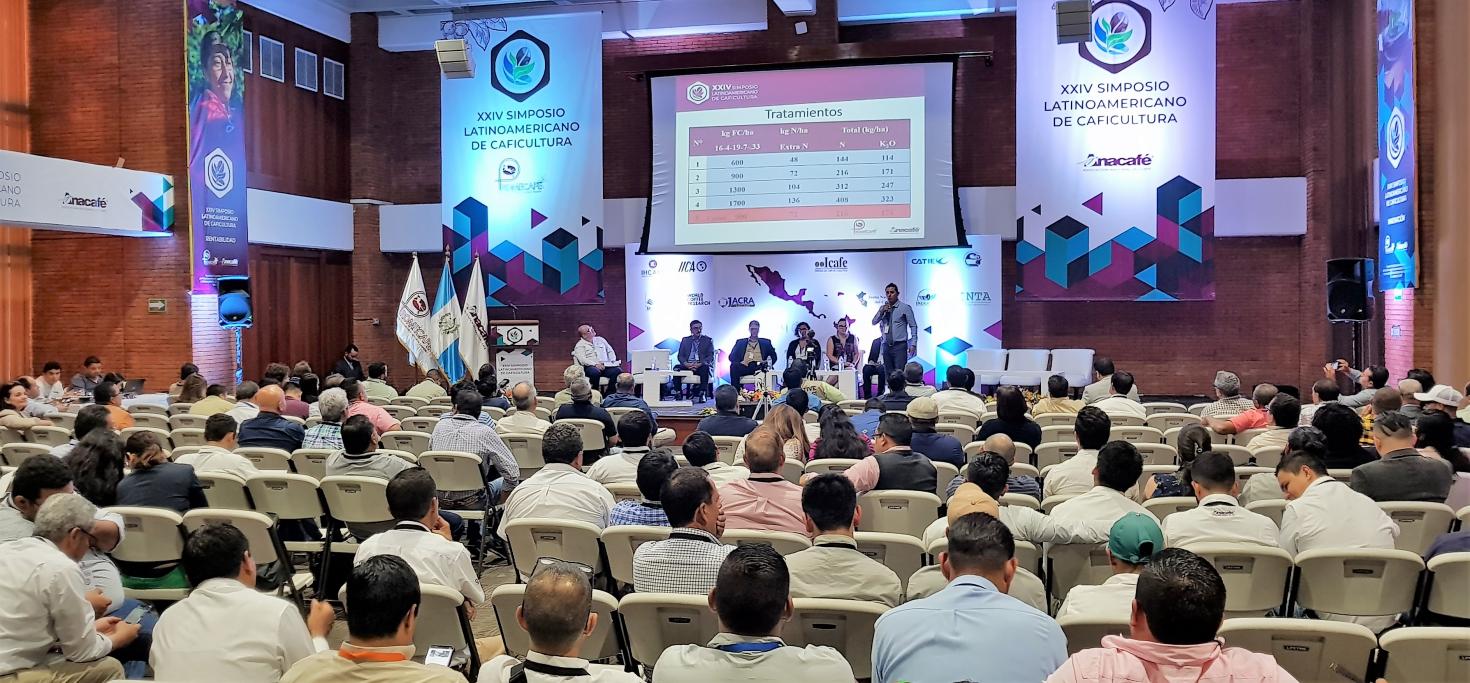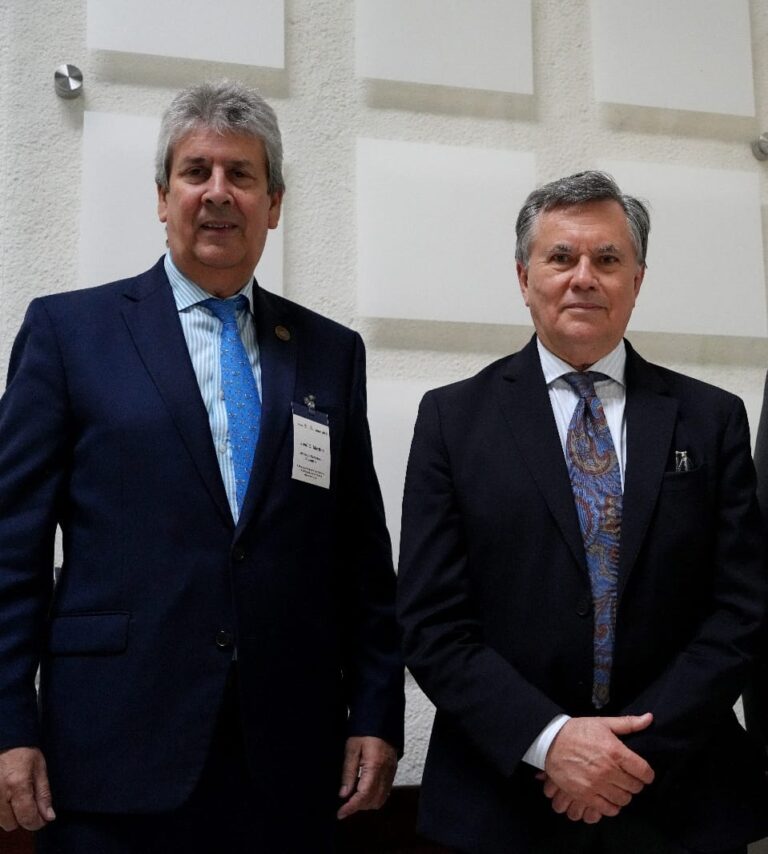PROMECAFE, an initiative supported by IICA, held a symposium with 330 participants from 14 countries across the region, which is home to more than one million coffee-farming families.

Guatemala, 18 September 2019 (IICA). Latin American researchers presented the results of research studies that seek to provide solutions to the challenges facing coffee farming in the region, in order to improve producers’ income, reduce production costs, increase resilience to climate change, foster the efficient use of natural resources, diminish environmental impacts, and increase the application of innovative tools and technologies.
The data was shared at the international symposium entitled “Research: The Cornerstone of Profitable, Innovative, Competitive and Socially Sustainable Coffee Farming in Every Link of the Coffee Chain,” which brought together 330 participants from 14 countries, including representatives of 27 institutions related to this sector.
The event was organized by the Regional Cooperative Program for the Technological Development and Modernization of Coffee Production (PROMECAFE), a research and cooperation network made up of the national coffee institutes of Mexico, Guatemala, El Salvador, Honduras, Nicaragua, Costa Rica, Panama, the Dominican Republic and Jamaica, as well as the Inter-American Institute for Cooperation on Agriculture (IICA), the Tropical Agriculture Research and Higher Education Center (CATIE) and World Coffee Research (WCR).
The opening ceremony of the international symposium included the participation of Vinicio Cerezo, Secretary General of the Central American Integration System (SICA); Lilian Pacas, President of PROMECAFE; Bernardo Solano, President of the National Coffee Association (ANACAFE) of Guatemala; and María Febres, IICA Representative in that country.
“We have compiled the research findings in a technical report, which will serve as a tool for sharing and disseminating knowledge among producers, so that they may adopt and apply this knowledge in the field to achieve better results on their farming units,” stated René León-Gómez, Executive Secretary of PROMECAFE.
The economic impact of coffee, the importance of genetic improvement in plants, the activity’s adaptability to and resilience in the face of climate change, as well as coffee quality and postharvest practices in relation to markets were some of the topics addressed during the conference.
Participants also discussed the evolution of pests and diseases, global consumption and supply, the application of tools and technologies in coffee farming, as well as the institutional framework and political advocacy for the sector.
“Successful, profitable and sustainable coffee farming is an effective option for fostering economic dynamism in coffee-producing countries and communities, generating employment opportunities, and distributing income among over 1.1 million coffee-farming families,” added León-Gómez.

The Executive Secretary of PROMECAFE underscored the fact that, in addition to lacking financial sustainability, regional coffee farming faces other challenges, such as the intensification of pests and diseases, limited access to funding, little interest of youth in the activity, low participation by women, a workforce shortage, and growing demands from the international market.
“A great amount of effort, creativity and innovation on the part of producers is necessary in order to thrive in coffee production, which is why these research studies are so relevant,” remarked León-Gómez.
The conference also allowed for strengthening technical exchanges between countries and fostering partnerships with cooperation and research institutions. An expo-fair related to the coffee value chain was also carried out, providing visitors with an opportunity to learn about the latest technology for use in coffee farming.
A field visit to Finca Experimental Las Flores, an experimental farm in the Santa Rosa department of Guatemala, was also carried out. Participants learned about improvements in coffee tasting, the use of drones in coffee farming, as well as the handling of tissues and grafts.
More information:
René León-Gómez, Executive Secretary of PROMECAFE.











